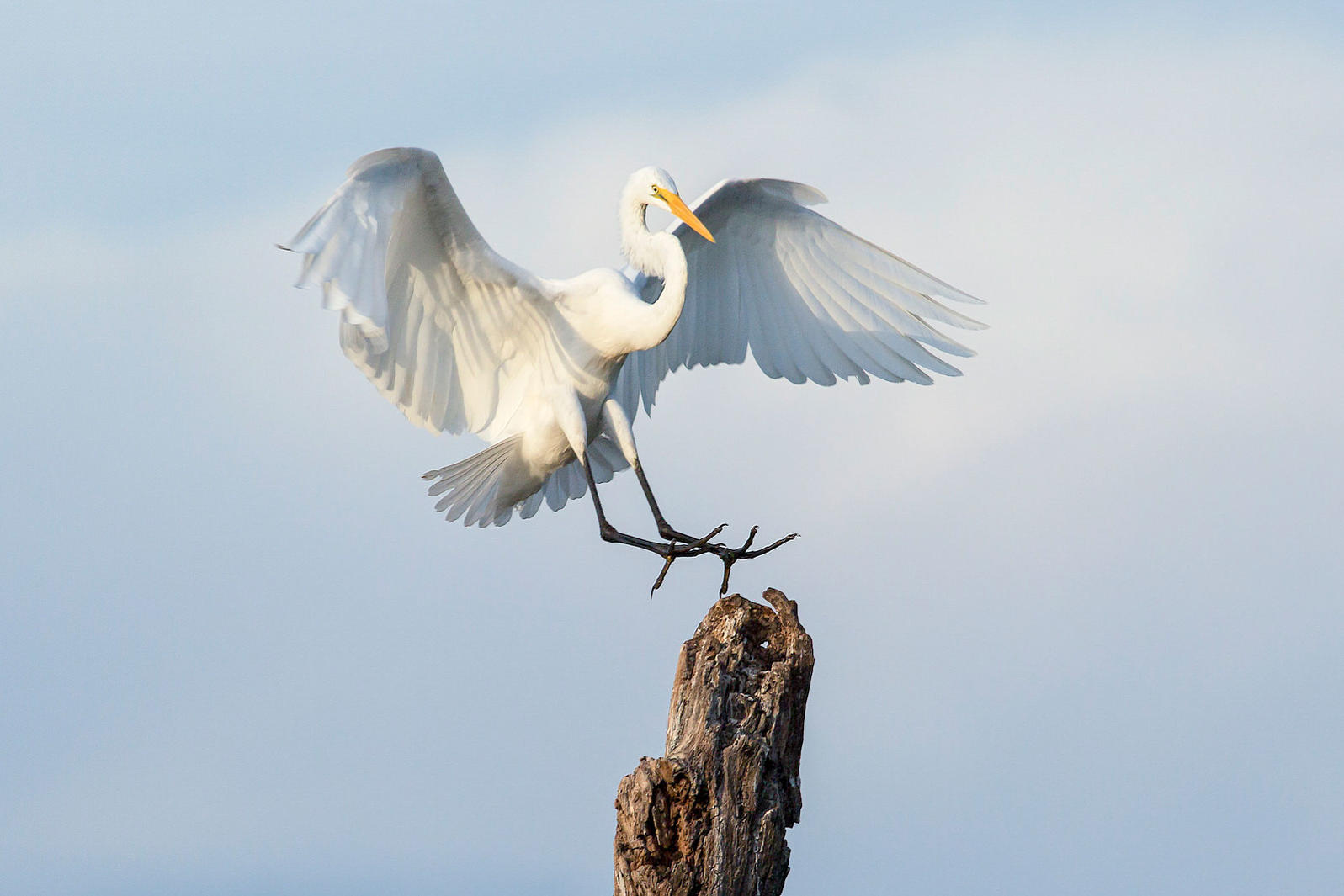
Great Egret. Photo: Veryl Witmer/Audubon Photography Awards
Calls Plan to Rewrite Rules Bad for Birds and Business
October 19, 2018 - WASHINGTON – “There is zero demand or desire from the American people for gutting bird protections and putting nearly every bird in this country at greater risk,” said David O’Neill, National Audubon Society’s Chief Conservation Officer. “But the Administration is doubling down on its efforts to weaken a law that has motivated businesses to adopt simple practices that have saved billions of birds. The hundred year old law is part of Audubon’s legacy and it is our responsibility to mobilize our more than one million members to protect it.”
This week, the Office of Management and Budget (OMB) published a list of regulations targeted for revisions this year. It includes the Migratory Bird Treaty Act (MBTA), the nation’s oldest and most effective bird conservation law that protects nearly a thousand species of birds from poaching, hunting and from industrial activity.
The proposed rule will codify the Trump Interior Department’s legal opinion, issued last December (M-37050), which reversed decades of government policy and practice—by both Democratic and Republican administrations—on the implementation and enforcement of the MBTA regarding industrial and development activity. Audubon filed suit in May 2018 challenging that opinion.
The Act's prohibition on the killing or "taking" of migratory birds has long been understood to extend to “incidental” take from industrial activities—meaning unintentional but predictable and avoidable killing. Under the Trump administration's revised interpretation, the MBTA’s protections apply only to activities that purposefully kill birds. Any “incidental” take—no matter how inevitable or devastating the impact on birds—becomes immune from enforcement under the law.
“They claim this revision will reduce regulatory burdens and uncertainty for the public, but the exact opposite is true,” said O’Neill. “Eight states have already sued the federal government to reverse this opinion, and additional states may well step up and create their own regulations to backstop the federal law in order to maintain protections for birds. This would create regulatory uncertainty for business and industry,” he said.
The risk of liability under the MBTA has long provided the oil and gas industry, wind energy development companies, and power transmission line operators with an incentive to work with the U.S. Fish and Wildlife Service to minimize bird deaths.
Find a fact sheet on the MBTA, birds and energy industries here.
The National Audubon Society protects birds and the places they need, today and tomorrow. Audubon works throughout the Americas using, science, advocacy, education and on-the-ground conservation. State programs, nature centers, chapters, and partners give Audubon an unparalleled wingspan that reaches millions of people each year to inform, inspire, and unite diverse communities in conservation action. A nonprofit conservation organization since 1905, Audubon believes in a world in which people and wildlife thrive. Learn more how to help at www.audubon.org and follow us on Twitter and Instagram at @audubonsociety.
Source: National Audubon Society








